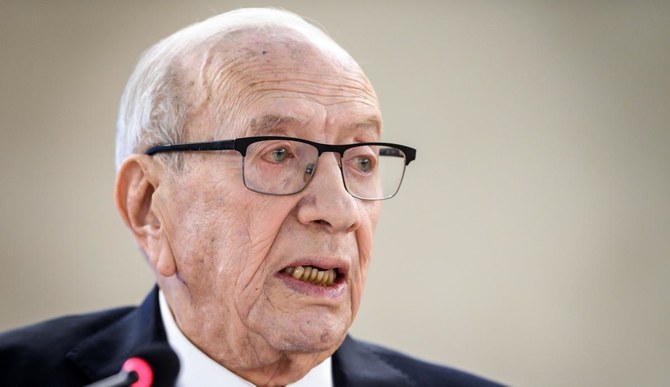TUNIS: Tunisian President Beji Caid Essebsi, 92, a major player since the country's transition to democracy since 2011, was on Thursday taken to a military hospital after suffering a "severe health crisis", the presidency said.
One of his advisers told Reuters he was in a "very critical" condition but was alive, denying media reports he had died. No more details were immediately available.
Essebsi was hospitalised last week as well, for what the presidency described as non-serious treatment.
Essebsi has been a prominent figure in Tunisia since the overthrow of autocrat Zine El-Abidine Ben Ali in 2011 which set the North African country on a path to democracy, avoiding the more violent upheavals seen in the rest of the region.
He led the immediate transition as prime minister in 2011 and was elected president three years later. Essebsi was a senior figure before 2011, having served as foreign minister under state founder Habib Bourguiba and parliamentary speaker under Ben Ali.
He said in June he would not run for a second term in presidential elections this year, despite his party’s calls for him to stand. The party has not identified another candidate yet.
Under a new constitution guaranteeing democratic freedoms, Essebsi has limited powers compared with Ben Ali. His is mainly responsible for foreign and defence policies.
The day-to-day business of government and economic policy is run by Prime Minister Youssef Chahed, in office since 2016. He is also the main contact person for the International Monetary Fund and other donors which have kept Tunisia afloat amid its economic crisis.
Meanwhile, Tunisian Prime Minister Youssef Chahed visited President Beji Caid Essebsi in hospital and called on people to stop spreading fake news about his health, he said on his Facebook page.
"I assure the Tunisians that the President of the Republic is in the process of receiving all the necessary attention he needs," Chahed wrote.
"I call on everyone to refrain from broadcasting false news that will cause confusion among Tunisians."



























